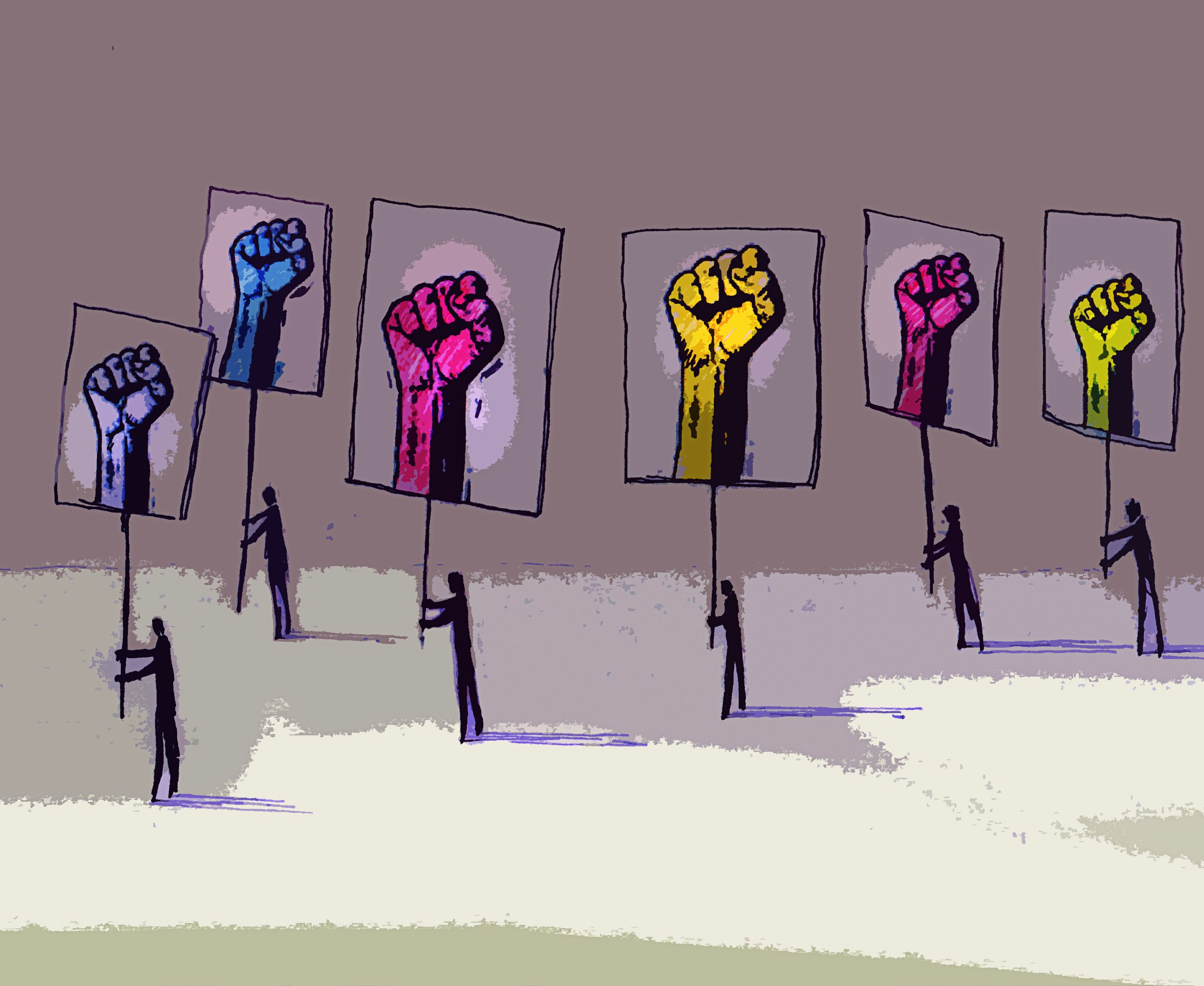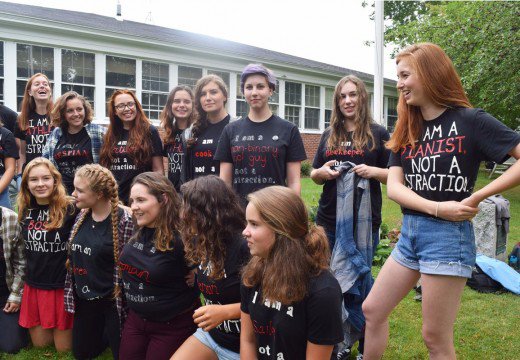
October is National Bullying Prevention Month, and while schools plan to educate kids with their best anti-bullying tactics, one anomaly stands out. School systems are perplexed by “mean girls.” How do you discipline social exclusions, relational forms of aggression and “accidental” bumps in the hallway? But fighting between girls is largely about social power—not, as we might think, about cattiness or simply being “mean.” It stems from larger societal issues, like the sexism seen in school dress codes, which is why our current anti-bullying tactics aren’t successful for young women.
Girls are so frequently told that they can’t ask for what they want. When it’s a transgression to assert yourself fully, it’s difficult to get power through the usual channels. So girls develop all kinds of strategies, healthy and unhealthy, to remain connected and whole in environments that require them to lop off parts of themselves. This can manifest itself in sexism, racism and homophobia they pick up from media and inflict horizontally on other girls—calling each other hos, sluts and bitches, judging other girls and women against images of beauty and success.
Instead of punishing this behavior on a case-by-case basis, educators need to start appreciating girls’ need to have control in their own lives, to be taken seriously, to have an effect on their world. In other words, we need to support and encourage their activism.
The first day of school this fall at George Stevens Academy in Blue Hill, Maine, girls came to class wearing t-shirts to protest the school dress code, which they believed unfairly targeted and discriminated against female students. Such protests have become commonplace in schools from Maryland to South Carolina to California ever since a group of New Jersey girls started the movement #IAmMoreThanaDistraction two years ago. They are more than a generational claim to personal style or identity; they stand in for all the ways girls feel sexualized, disrespected and treated as second-class citizens.
While administrators may dig in their heels and warn of the dangers of bad choices and sexualized clothing, girls are having real debates and more sophisticated dialogues about how dress code policies can become just another hostile school experience for girls of color, for trans students and gender nonconforming students and for low-income students. They are asking teachers to address their own unconscious biases, to reflect on their internalized sexism, racism and classism, and to examine their struggle with students who challenge the gender binary.
Activist work brings a coalition of people together who share passion for a common cause. It’s work that requires girls to put what they care about, what they know and what they’re good at in service to something bigger than themselves. Engaging in activism decreases feelings of alienation and increases self-esteem, by offering connections and possibilities that help counter all the justified reasons girls can feel numb, angry, alienated and powerless.
Reclaiming power in this way, separating it out from a consumer version of citizenship that invites girls to remake themselves, to shop and prettify their worlds, provides girls with something real and solid on which to hang their self-worth.

In the photo that accompanies the George Stevens Academy #IAmMoreThanaDistraction protest, students from different social groups are hanging together, laughing, like they’re all in on the secret. Each wears a black t-shirt announcing both their individuality and their collective action. “I am a pianist, not a distraction,” “I am a Thespian, not a distraction,” “I am a beekeeper, not a distraction.” Some boys have joined them: “I am an athlete. I am not distracted.”
They are a coalition. They have done what all the expensive bully-prevention programs, speakers, and trainers fail to do: Bring students together, across difference, to make their bit of the world a more just and caring place. Their school is better for it. So are we all.
Lyn Mikel Brown has been studying and working with girls for more than twenty-five years. A professor of education and human development at Colby College, she is the author of five previous books about gender and girlhood, and is the cofounder of three grassroots organizations.
More Must-Reads From TIME
- The 100 Most Influential People of 2024
- Coco Gauff Is Playing for Herself Now
- Scenes From Pro-Palestinian Encampments Across U.S. Universities
- 6 Compliments That Land Every Time
- If You're Dating Right Now , You're Brave: Column
- The AI That Could Heal a Divided Internet
- Fallout Is a Brilliant Model for the Future of Video Game Adaptations
- Want Weekly Recs on What to Watch, Read, and More? Sign Up for Worth Your Time
Contact us at letters@time.com